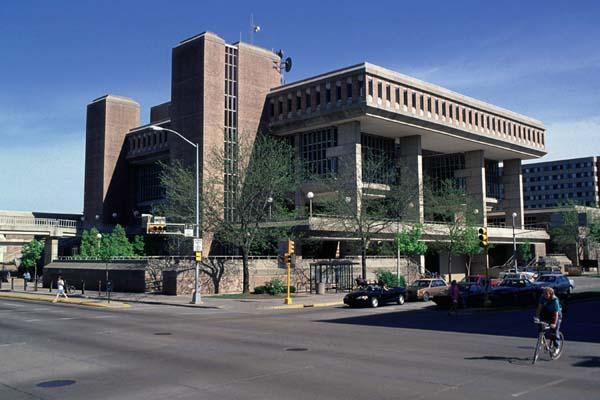Every day students and staff at the University of Wisconsin walk by construction. It is becoming just as prevalent as Canada Goose jackets and Carhartt winter hats. As Greek affiliated students have replaced any sense of individual style, UW is constantly replacing outdated dormitories, gymnasiums and countless other facilities on campus. Universities are expanding and upgrading themselves across the world. There is no end in sight for this trend as it is fueled by a captive market of students that have been taught that a degree is essential to find gainful employment.
UW, in particular, will expand long into the future. It is implicitly mandated by the Wisconsin idea that the University expands its facilities and abilities to teach and research. Every 10 years, UW creates a Campus Master Plan to guide this construction and the direction Campus is being taken in.
“The Master Plan Update will serve as a tool to help establish a continuing framework to guide the orderly growth and development of the campus while protecting and enhancing important open spaces as well as historic and cultural landscapes,” according to the Campus Planning and Landscape Architecture Website.
The goals of the current 2015 Master Plan include supporting the mission of teaching, research, outreach, sustainability, ease of travel, celebrating the lakeside and the outdoors and being good neighbors to the broader Madison community.
What they don’t state is the absolute necessity to revamp almost every building on campus. Ask any student their opinion on Vilas, Mosse or the Engineering Halls and you will not get an endearing response. All three are labyrinthine constructions that have tried so hard to have attractive exteriors with their out-there designs but have miserably failed. Mosse seems to go for an open Mediterranean villa look whilst being composed of brutal concrete, and is anything but open on the inside. The Engineering Hall may have a spacious and modern first floor, but the upper levels are long hallways, random stairwells, and almost random twists and turns that are too easy to get lost in.
The sheer size of campus paired with the poor or outdated designs of its buildings makes navigating campus difficult. The 2015 Master Plan addresses this by beefing up the public transportation system. Don’t expect an overhaul of these spaces to make them modern and easier navigated — that would be far too expensive, and no student wants tuition to go up.
As tuition rates soar, generations of Americans are left financially crippled
UW could, however, make an effort to map out directions to each room on campus and integrate that into the Wisconsin app. It needn’t be a huge expenditure, like a revamp of campus architecture. This cheap solution to make the campus more accessible could even be a fun project for a special Comp Sci class or some adventurous Geography majors.
Another important issue that is not directly addressed in the Master Plan is the lack of community engendered by the current design of the dormitories. The high-rise style of southeast dorms and the shorter and quieter lakeshore ones are both isolated. Much has been written about the destruction of community caused by the creation of social housing projects that can also be applied to the creation of dorms.
Dorms are a great place for safety, but isolating students from the wider community takes away from the sense of community felt with Madison and regular people. Exclusively living with and spending time with people between the ages of 18 and 23 is not normal. Creating clear boundaries between campus and the city will only compound that, and students will further delay their growth into full-blown adults.
Isn’t learning to live by oneself in wider society half the point of going to college?
For the 2025 Campus Master Plan, the University should get rid of exclusionary and overcomplicated designs. Instead, it should build new architecture that is integrated with Madison and better facilitates community. Allowing students to offer their input in some way would be expedient.
Harry Quick ([email protected]) is a freshman studying economics.














